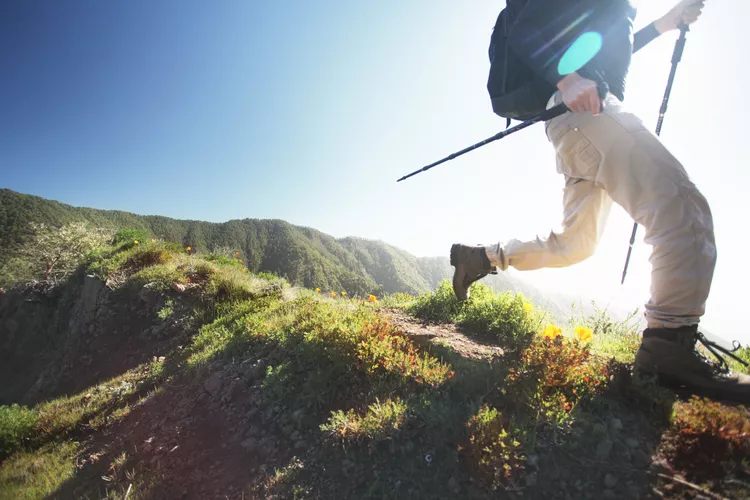Summary
How to Carry Hiking Poles on Your Backpack
Hiking poles offer valuable assistance for numerous activities on the trail, such as crossing rivers, testing mud depth, and clearing wet vegetation. Many hikers rely on them for weight support and balance, especially when carrying a heavy pack. Additionally, they provide vital support during falls, particularly while snowshoeing. However, when not in use, these same poles can become cumbersome. Therefore, understanding how to securely stow them on your backpack is essential for a hassle-free hiking experience.
1. Secure the Handle
It’s likely that your backpack features a trekking pole attachment point. Many of these attachment points consist of loops that can be cinched tight. To use this feature, first, loosen the cinch completely. Then, insert the handle of your trekking pole into the loop, ensuring it points toward the top of the pack.
In cases where the attachment opens completely, simply unhook the fastener, place the trekking pole in position with the handle facing upward, and securely fasten it around the pole.
- Insert the point of the trekking pole through the loop in the bottom corner of your pack, ensuring the basket prevents it from falling through.
- Press down to ensure the pole’s point seats properly in the loop.
- Tighten the cinch point around the pole’s body to secure it in place.
- Repeat for the other pole and continue hiking hands-free!
However, if you find that your backpack lacks such an attachment point, don’t worry—there are alternative methods available.
2. The Side Pocket Trick for Securing Hiking Poles
If your backpack has a side pocket and compression straps, you’ll find a simple solution. Insert the handle ends of the trekking poles into the side pocket, then use the compression straps to secure them by cinching them tightly around the poles.
3. Securing Your Trekking Poles with Compression Straps Only
For backpacks that do not feature side pockets but include horizontal compression straps, securing your poles remains feasible. These straps can be placed in various locations and not just on the sides. To use them, loosen the straps, slide the poles through (with handles facing down and baskets pointing up), and tighten the straps to secure them in place. Remember, your trekking poles should have baskets; otherwise, they might slip through the straps.
If your backpack lacks compression straps entirely, search for slots or patches with open spaces. You can strap your poles with purchased compression straps or use cordage to create your own adjustable straps.
4. The Top Carry
If your backpack does not include dedicated trekking pole attachment points or side pockets and compression straps, you can adopt a simple, albeit slightly awkward, carrying method. Lay your trekking poles across the top of your pack, cinching them down to secure them in place.
This method functions similarly to previous options when using a larger backpack. Position the poles across the main compartment top, fasten it down, and cinch them securely. Though this option may create a little crossbar effect, it’s much better than hand-carrying poles throughout your hike.
If no top cinch or straps are available, you can place the poles inside the backpack with the handles pointing down and points protruding from the pack’s top. Just be careful to secure them tightly and watch out for your hiking companions!
Overall, knowing how to properly secure your trekking poles can significantly enhance your hiking experience, letting you travel comfortably while keeping your hands free.




